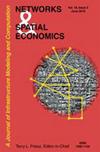俄罗斯黄金采矿业:制裁冲击
IF 1.5
3区 工程技术
Q3 OPERATIONS RESEARCH & MANAGEMENT SCIENCE
引用次数: 0
摘要
由于全球制裁制度的建立,故意使世界市场分裂,这促使俄罗斯和整个世界经济完全过渡到不稳定的运作模式,其基本特征之一是全球货币和金融制度的变形,仅在两年前,全球货币和金融制度似乎没有其他选择,只能以美元为基础。这些事件的后果之一是,在向多种全球支付手段过渡的过程中,黄金作为国家储备稳定的基础和单一基础的作用得到了客观的加强。补充黄金储备的唯一来源是黄金开采,尤其是对现代俄罗斯来说,西方的制裁已经有效地切断了俄罗斯与世界黄金贸易的联系。俄罗斯在黄金储备和资源方面一直是世界领先的国家之一,在世界产量中排名第三。2012年至2021年,俄罗斯的黄金产量增长了1.5倍,这得益于2014年后美元汇率上升导致俄罗斯黄金价格相对于全球价格的增长。与此同时,黄金在俄罗斯黄金和外汇储备中所占的份额比发达国家少三分之一。本文讨论了俄罗斯远东和西伯利亚地区的生产问题,其对这些地区社会经济发展的影响以及黄金在国家经济中的作用。对制裁对包括黄金在内的贵金属流通的影响进行了评估。作者评估了外部制裁和俄罗斯中央银行的宏观经济政策在补充黄金储备方面的影响,以及俄罗斯卢布对黄金生产、黄金消费结构和黄金采矿业经济形势的波动本文章由计算机程序翻译,如有差异,请以英文原文为准。
Russia’s Gold Mining Industry: Sanctions Shocks
The deliberate fragmentation of the world market as a result of the establishment of a global sanctions regime provoked a complete transition of both the Russian and the entire world economy to non-stationary modes of operation, one of the fundamental features of which are the deformations of the global monetary and financial system, which only two years ago seemed to have no alternative to the one based on the US dollar. One of the consequences of these events is the objective strengthening of the role of gold as the basis for the stability of national reserves and a single base in the transition to a plurality of global means of payment. The only source of replenishing gold reserves is gold mining, especially for modern Russia, which Western sanctions have effectively cut off from the world trade in gold. Russia has traditionally been one of the world leaders in terms of gold reserves and resources, ranking third in world production. Gold production in Russia increased by a factor of 1.5 in 2012–2021, facilitated by the growth rate of the Russian gold price relative to the global price due to the rise in the dollar exchange rate after 2014. At the same time, the share of gold in Russia’s gold and foreign exchange reserves is three times smaller than that of developed countries. This article discusses the problems of production localised in the regions of the Russian Far East and Siberia, its impact on the socio-economic development of these regions and the role of gold in the country’s economy. The impact of sanctions on the circulation of precious metals, including gold, is assessed. The authors assess the effects of external sanctions and the macroeconomic policy of the Russian Central Bank in terms of replenishing gold reserves and the volatility of the Russian ruble on gold production, the structure of gold consumption, and the economic situation in the gold mining industry
求助全文
通过发布文献求助,成功后即可免费获取论文全文。
去求助
来源期刊

Networks & Spatial Economics
社会科学-运筹学与管理科学
CiteScore
4.00
自引率
4.20%
发文量
26
审稿时长
>12 weeks
期刊介绍:
Networks and Spatial Economics (NETS) is devoted to the mathematical and numerical study of economic activities facilitated by human infrastructure, broadly defined to include technologies pertinent to information, telecommunications, the Internet, transportation, energy storage and transmission, and water resources. Because the spatial organization of infrastructure most generally takes the form of networks, the journal encourages submissions that employ a network perspective. However, non-network continuum models are also recognized as an important tradition that has provided great insight into spatial economic phenomena; consequently, the journal welcomes with equal enthusiasm submissions based on continuum models.
The journal welcomes the full spectrum of high quality work in networks and spatial economics including theoretical studies, case studies and algorithmic investigations, as well as manuscripts that combine these aspects. Although not devoted exclusively to theoretical studies, the journal is "theory-friendly". That is, well thought out theoretical analyses of important network and spatial economic problems will be considered without bias even if they do not include case studies or numerical examples.
 求助内容:
求助内容: 应助结果提醒方式:
应助结果提醒方式:


